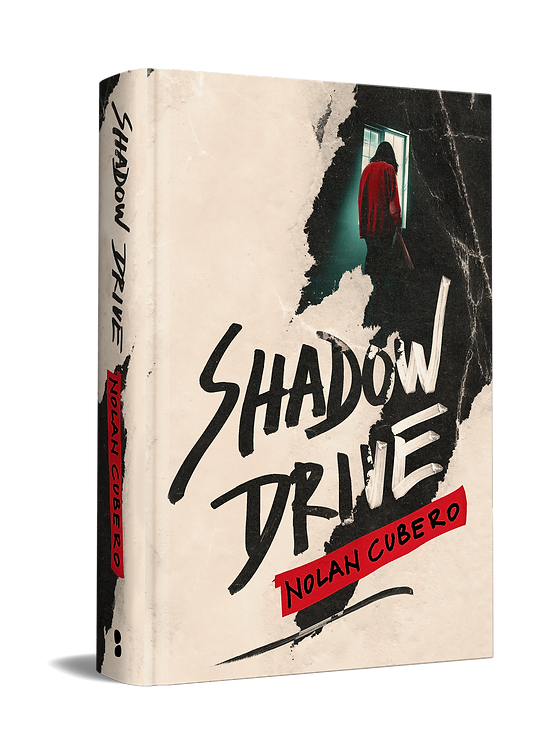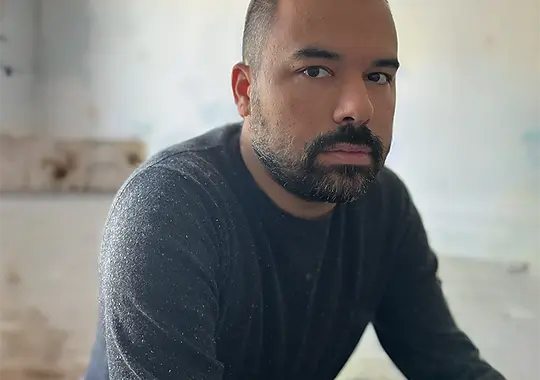TSM: Can you tell us a little bit about your newest novel, Shadow Drive?
NC: In Shadow Drive, the main character Gabe has just gotten back together with his ex-wife Anya after their daughter got seriously injured in a drunk driving accident. Since they’d decided to move back into Gabe’s house together to take care of their daughter, the house on Shadow Drive that Anya had lived in during the divorce is now sitting empty. Gabe is a landlord of a few small properties and offers to rent out the place for her. He finds a tenant, a woman who seems nice at first, but who, after he hands over the keys, turns out not to be who she says she is. Gabe discovers she knows a lot more about him and his family than she let on. Gabe decides to take things into his own hands and tries to figure out what the woman wants and what she’s hiding.
TSM: You say on your website that you like to write “dark stories with lots of twists and turns.” How do you usually go about planning such complex narratives? Are there ever moments in your process where you stumble across a great idea that would completely change your entire plan, or something of similar consequence?
NC: I’ve found that the less I plan at the beginning, the better the end product becomes. While writing, a lot of ideas occur to me in the moment, and I don’t want to be too constrained ahead of time. However, yes, sometimes I definitely write myself into corners and spend a lot of time feeling frustrated by some interesting idea that doesn’t make sense with the rest of what I’ve written. I try to just take time and logically think through everything and sometimes I even write out questions to myself and ask myself what would need to happen for, say, A and B to both make sense. In the process of typing out answers to myself and having a dialogue back and forth with myself about the story, I can challenge myself to see what the problems really are and spur my subconscious to come up with solutions. It’s sort of like the way the socratic method works in law school. I just press and press myself about the logic of a story and try my best to not let myself take the easy way out.
TSM: Your creative work has also included short films, including your most recent short film Ellis. What unique aspects of film do you enjoy being able to utilize in your art? Similarly, what about books that is unique to written mediums do you enjoy?
NC: With film, I love how you can convey so much emotion and complexity just with an actor’s face. Like a good actor won’t need to say anything, but they can make a look and you totally get how they feel. That might be as simple as one of Jim’s looks to the camera on The Office, or the more complex emotion you often see DiCaprio do. Certain actors can just convey what their characters are feeling purely through facial expression and body movement, and it creates a subtext that often contrasts with what they are saying and doing. In just a brief close up, you can convey so much emotional meaning. It’s really hard, for me at least, to convey a character’s body language in written words in the same economical way you can in a film.On the flip side, though, there is something great about not giving the audience so much specificity. I think a reader can invest more of themselves in a book than they can a film, because it’s up to their imagination to create the precise visual images. The words, in my opinion, should just be the spark, but then the reader creates the world in their head. Often people compare watching movies to the experience of dreaming, but I think reading can actually be more like dreaming. In dreams, in mine at least, the images while vivid can also be somewhat fuzzy, somewhat indistinct. And I think the images your mind creates when you’re reading are often closer to the images it creates when you’re dreaming. For this reason, I often try to write in sparse, simple, but hopefully evocative enough language to give the reader enough to understand what’s going on, but not too much that I preempt their brain’s image creation process. I think, then, a reader can almost feel like they have actually experienced the book they’ve just read. And their reading experience will actually be unique and personal.
TSM: In addition to being a novelist and filmmaker, you’re also currently studying law at UCLA School of Law. How do you balance your education and your artistic pursuits?
NC: To be honest, I need to get better at balancing both. I’m a bit obsessive, and I can get sucked into something and will ignore everything else. When I’m working on a book or some other creative thing, I ignore my readings for school for a few weeks. Other times, if there’s a test coming up or a trial competition, I will basically ignore my creative projects.
TSM: Is there anything you have encountered in your studies that have influenced your writing?
NC: One thing I like about the legal world is how precise the language often is. I know there’s a lot of people who think the law is just a bunch of puffery and equivocation but I find that a lot of the law is really about being clear and to the point. I find in general that the professors and lawyers I’ve met are pretty exacting about other people’s language. It’s an environment where I find it’s near impossible to bullshit. And I think that has made me strive to write with more clarity and precision.Substance wise, so much of what you study in school is court cases, and a lot of them have facts that are pretty bizarre. I don’t know that any of it has influenced my writing in particular, but I think it must be expanding my imagination in some way.
TSM: What would you say is a key or central theme in your stories?
NC: Probably that life is unpredictable and things are never quite like what they seem.
TSM: Do you have any works in progress that we can look forward to after Shadow Drive?
NC: I am working on a few different suspense thrillers. I’m not sure which one will be coming out next. I also just finished a middle grade time travel story, which is also suspenseful and fun, but less dark than Shadow Drive, and I’m looking forward to people reading that.

